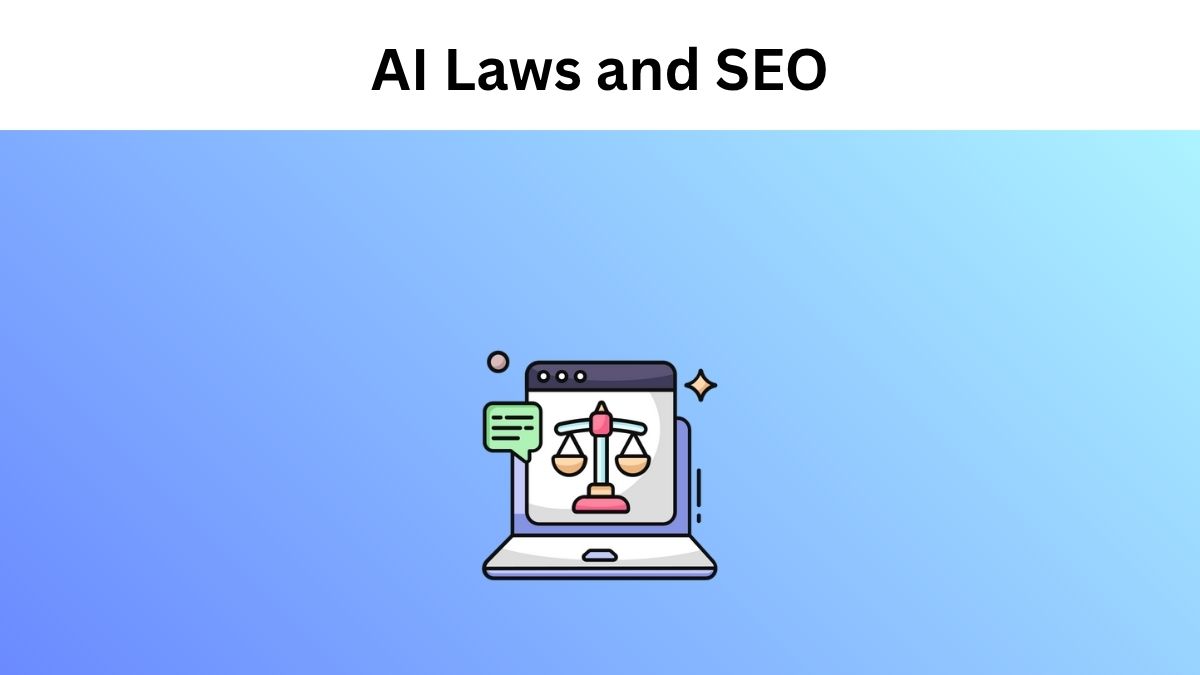Although at first it seemed the introduction of AI could improve a copywriter’s work-life balance, allowing them to complete tasks faster and better without having to stay up late, the reality struck like a bolt from the blue. Over time, AI regulations emerged as earnest attempts to govern AI use worldwide. The regulations outline compliance challenges the SEO community must navigate. The major ones are Biden’s AI Order and the EU AI Act.
Biden’s AI Order and the EU AI Act Explained
Both laws are a new secret code and a game-changer, demanding SEO to dance alongside Large Language Models (LLMs) in a sophisticated way. According to the Order and Act wording, SEO agencies need to work on a new level of strategy if they want to set up a camp in the EU or the USA.
For instance, the EU AI Act aims to protect users and streamline their collaboration with digital spaces and content that are environmentally conscious, unbiased, secure, and transparent. But do the new laws give any definitions of what an AI system is? No, and this is a huge challenge. Categorization of whether a new setup qualifies as AI software is far from clear or straightforward. It now lacks any corporate infrastructure.
Today, large enterprises and small businesses must work with their legal teams to establish parameters for their companies to serve their end users. With this in mind, Stanford Research published a paper highlighting AI compliance indicators. According to the graphic, the core pointers for Large Language Model compliance are:
- Data governance
- Data source
- Compute and energy power
- Copied information
- Mitigations and risks
- Limitations and capabilities
- Testing
- Content generated by AI
- Downstream documents
- Member states
Also Read: Measuring the Impact of Compliance Training
For a company to survive under the new law-based pressure, it’s critical to highlight the significance of AI and data processing transparency within its operations.
Considerations under AI Regulations
IP and Copyright
This is one of the major concerns when AI is used in SEO. It is very typical for AI-based systems to scrape large datasets and analyze them. What should be done to eliminate legal issues and claims or avoid them completely? – Data should be obtained legally, or an agency should have the right to reuse it. Agencies must regularly audit AI models and data to ensure compliance with laws and usage rights.
Data privacy
It’s no secret that Artificial Intelligence and data are co-dependent. Collecting, storing, and processing data should comply with privacy laws such as the GDPR and the EU AI Act. SEO agencies that work with AI and data must prioritize privacy in data collection. They also have to obtain end-user consent and implement security measures to ensure data protection: data encryption and anonymization, access controls, regular updates, and audits.
Also Read: Best Fake ID Websites for Scannable Cards
Bias
Bias in AI negatively affects marketing data and even (at times) appears to be discriminatory when it comes to specific groups or individuals. It’s the SEO agencies’ responsibility to actively prevent the possibilities of algorithmic bias that can unfairly impact human behavior. What should be done for risk mitigation? It is crucial to ensure that diverse perspectives and data are considered when designing AI models. Plus, agencies have to monitor results for signs of discrimination or bias constantly.
Misleading content
Synthetic content generated by AI tools is frequently fake, misleading, or imprecise. For instance, such tools easily generate fake news or promote inappropriate products, places, and services. To avoid this and the damage it causes, SEO agencies need to use AI content detection tools like Attrock AI content detector, review the sources and fact-check the content, cross-reference sources, separate facts from opinions and myths, and assess content for suitability.
Liability
Why does the liability question even appear? Artificial Intelligence systems become rather complex. If a company utilizes AI tools, it must prepare for the following consequences: discrimination and bias, power abuse, and privacy loss. New laws take new positions on hazardous AI software, with major effects on end-user rights, underscoring why SEO companies need to comply with laws, terms, and policies when using AI regulations.
Also Read: Law Firm Marketing SEO is Essential to Rank your Firm on Google
Summing Up
Biden’s AI Order and the EU AI Act are only some of the laws that have begun to appear alongside the advancements AI brings and the risks it poses. Surely, soon laws will become stricter and more sophisticated, showing the lines that should never be crossed. So far, SEO agencies that use AI in their processes are swimming in dangerous waters and need legal counsel, not to swim with seals.






